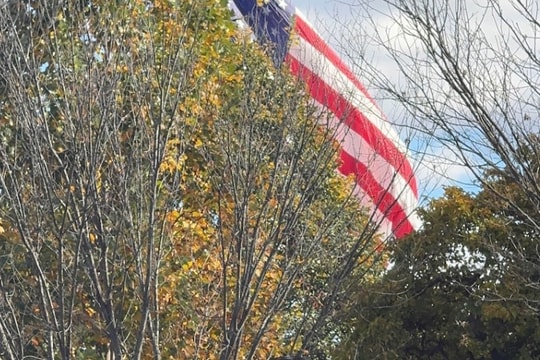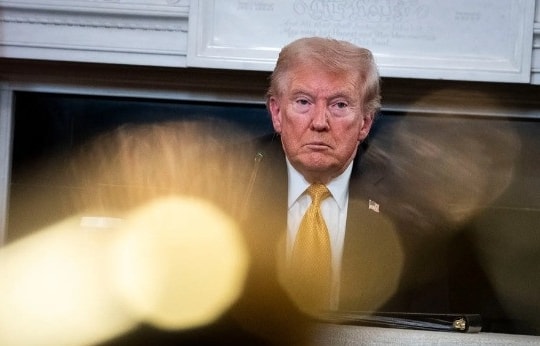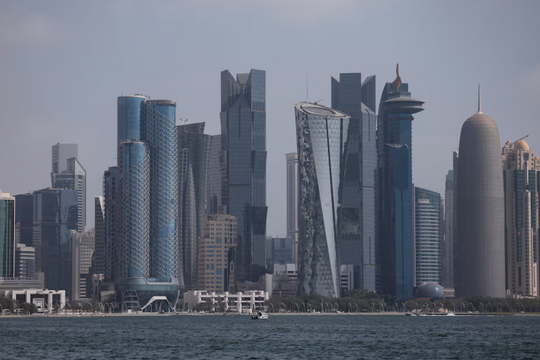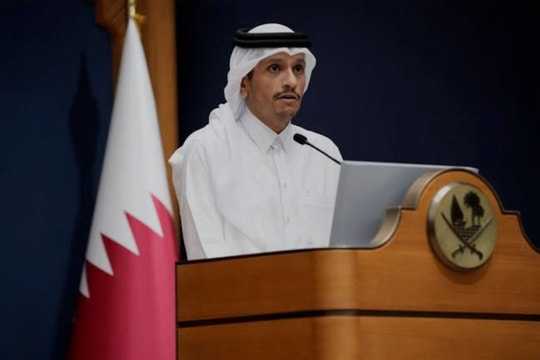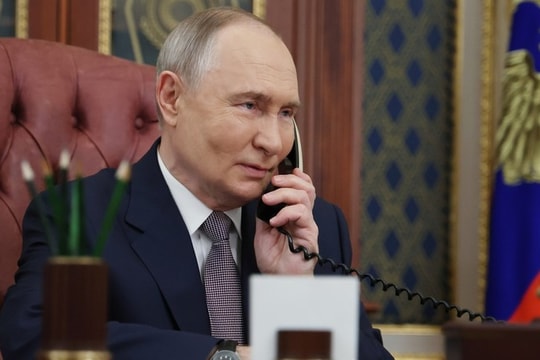Visit to the Middle East - a strategic move of the Japanese Prime Minister
(Baonghean) - Perhaps, the recent US-Iran tensions and fears of direct conflicts have made many leaders of countries "restless".
If in the middle of last week, Russian President Putin unexpectedly visited the Middle East, then starting from the weekend - January 11, Japanese Prime Minister Abe Shinzo also set off on a tour of three Middle Eastern countries. The visit took place just a few days after two patrol planes of the Japan Self-Defense Force (SDF) were sent to the Middle East, showing the special interest of the Tokyo government in this region.
Stuck
Right before Prime Minister Abe's visit to three Middle Eastern countries including Saudi Arabia, the United Arab Emirates (UAE) and Oman, despite the ongoing US-Iran tensions, on January 11, two Japanese P-3C patrol aircraft left Okinawa for the Middle East on the first long-term intelligence gathering mission of the Japan Self-Defense Forces (SDF) overseas. These aircraft will replace a unit involved in anti-piracy missions off the coast of Somalia. This unit will carry out missions in the Gulf of Oman, the northern Arabian Sea and the Gulf of Aden, to ensure the safety of Japan-related commercial vessels passing through this area.
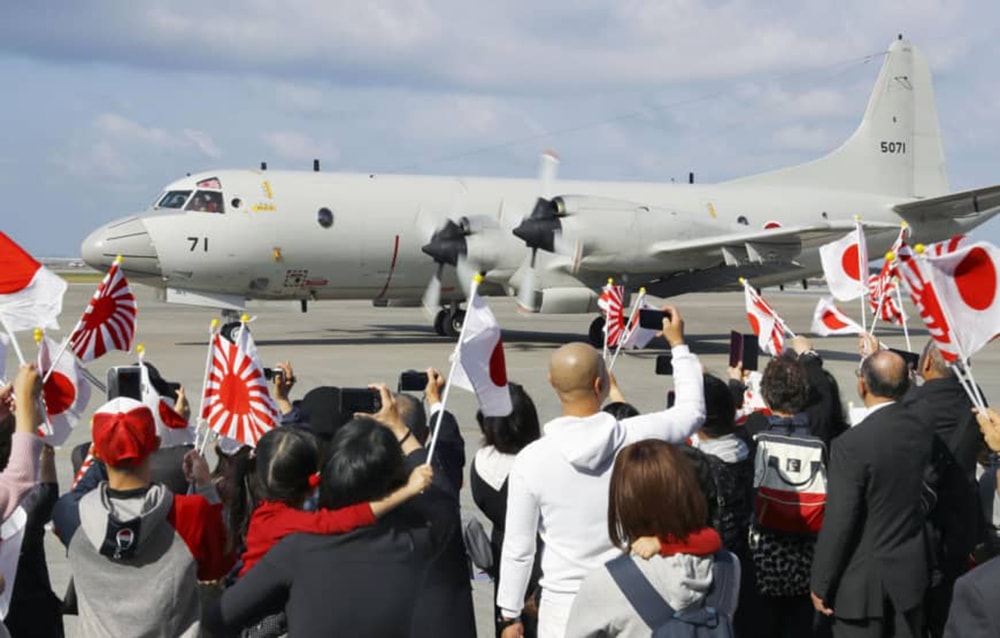 |
| A Japan Self-Defense Force P-3C patrol aircraft departed from an air base in Naha, Okinawa Prefecture on Saturday (Jan 11) for the Middle East, on its first long-term overseas intelligence-gathering mission. Photo: Kyodo |
In fact, this is the first step to realize the agreement between Japanese Prime Minister Abe and Iranian President Hassan Rouhani during the Islamic nation's recent visit to Tokyo, according to which Japan will dispatch units of its Maritime Self-Defense Force to the Middle East.
As soon as this agreement was reached, observers said that this was a smart move by Tokyo, in the context that this country is under pressure from its ally the US to join the military alliance "Maritime Security Initiative" led by the US. Of course, the Japanese forces are only for the purpose of "investigation and research"; and that these forces will not operate in the Strait of Hormuz - something Tehran is always wary of. Previously, Iran always objected, saying that the appearance of this alliance would only complicate the situation in the region.
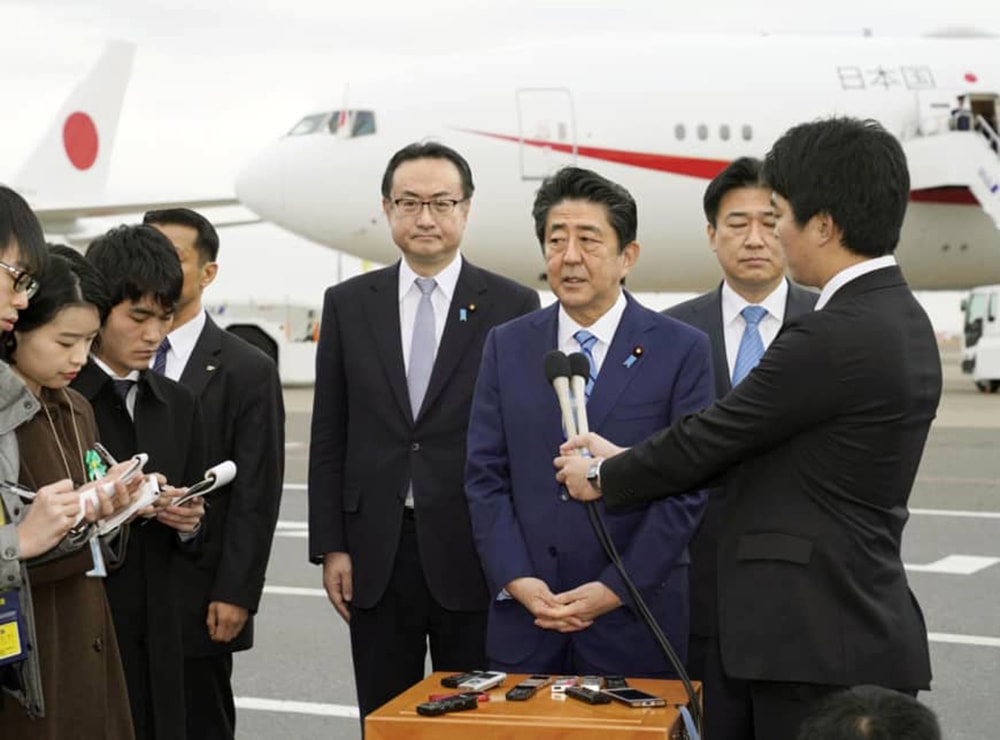 |
| Japanese Prime Minister Abe Shinzo answers the press before leaving for Middle Eastern countries. Photo: Kyodo |
It should be recalled that as a resource-poor country, Japan currently imports about 90% of its crude oil from the Middle East, of which nearly 70% is from Iran. However, since the US decided to withdraw from the historic nuclear deal reached between Iran and the world powers and imposed a series of sanctions, Japan has been caught in a dilemma between the troubled US-Iran relationship. Under sanctions, the energy supply from Iran to Japan has been interrupted, causing the Tokyo government to have a headache in finding other energy sources.
Even if an alternative energy source is found, any conflict or tension between the US and Iran in particular and the Middle East in general will cause Japan to fall into an “energy crisis” scenario. This situation has given Japan more reason to promote its role as a mediator between the US and Iran in particular, and the tension in the Middle East in general, to avoid negative developments that threaten the country’s energy security.
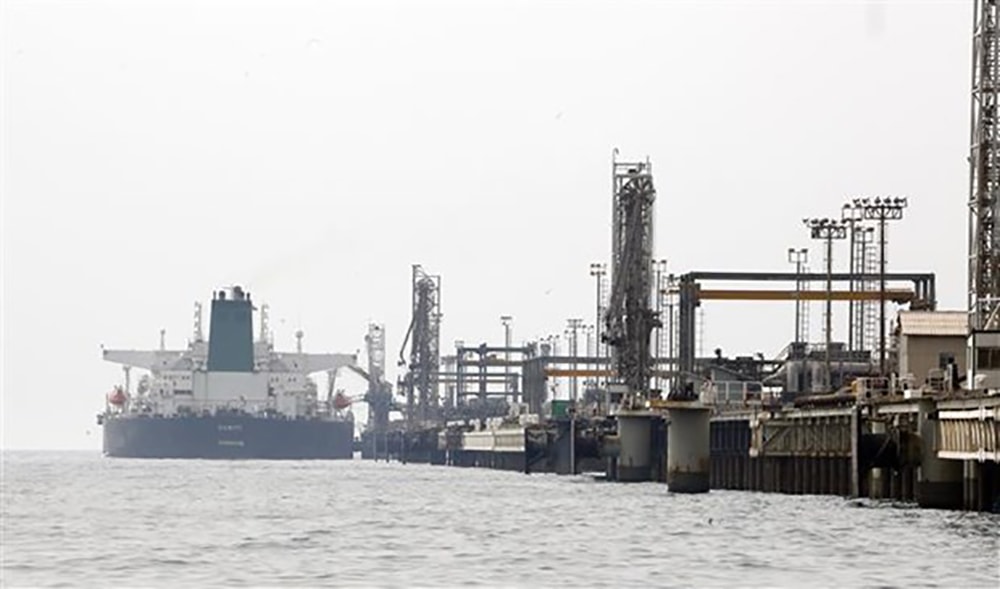 |
| An oil facility on Iran's Khark Island off the Persian Gulf. Photo: AFP/TTXVN |
Promoting peace initiatives
In the current chaotic context, Prime Minister Abe's 5-day visit to Saudi Arabia, the United Arab Emirates (UAE) and Oman is one of the strategic steps to ensure Tokyo's interests in the region. Because according to Prime Minister Abe, these are countries that play an important role and have a lot of impact and influence on stabilizing the situation in the Middle East. That's why, despite the escalating regional tensions in recent days, while the Japanese press also reported that the Prime Minister would cancel the visit, Mr. Abe still decided to make this trip. This decision alone also shows the special interest of Prime Minister Abe's administration in the Middle East hotspot.
According to observers, Japan's advantage is the good relationship with all three countries that has been established over time.
At the first stop, Saudi Arabia, the Japanese Prime Minister was received by Prince Faisal bin Bandar bin Abdulaziz, Governor of Riyadh, and then met with Crown Prince Mohammed bin Salman.
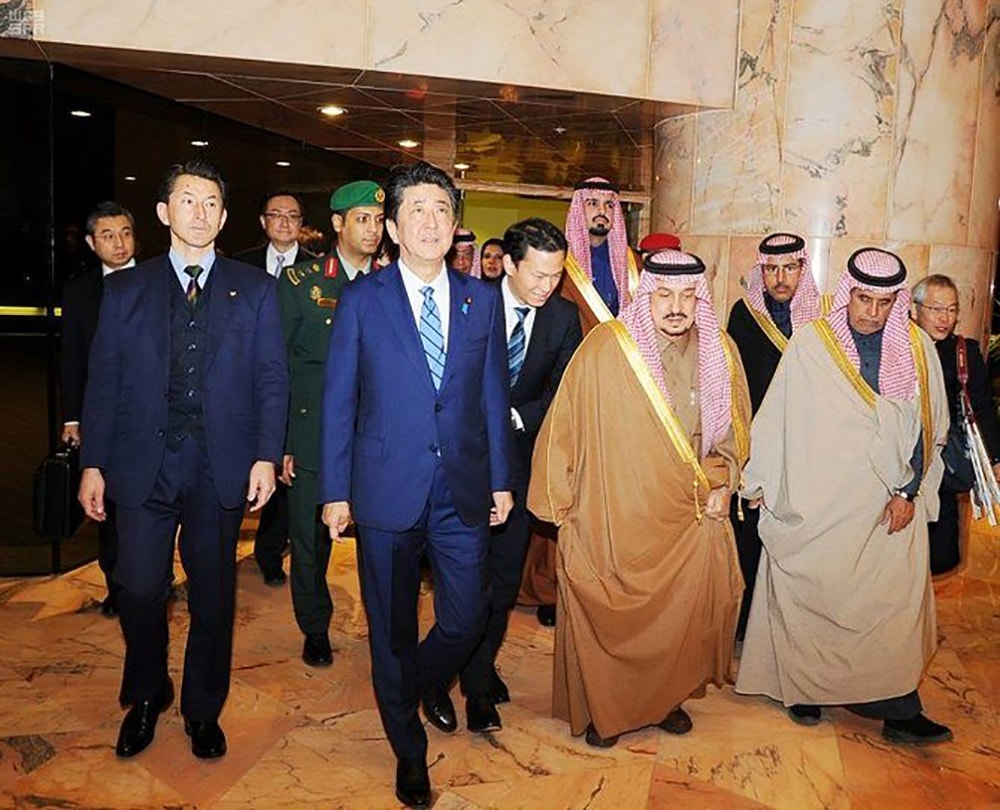 |
| Japanese Prime Minister Abe Shinzo arrived in Riyadh, Saudi Arabia on Saturday (January 11) on the first leg of a three-nation Middle East tour to further strengthen bilateral cooperation between Tokyo and the region. Photo: Arab News |
It is expected that in the United Arab Emirates (UAE) and Oman, Prime Minister Abe will also continue to discuss Japan's plans to call for support from these countries in sending units of Tokyo's Self-Defense Forces to the Middle East. Obviously, with the nod of these countries, Japanese commercial ships can operate safely and effectively.
On the other hand, before the visit, Mr. Abe also told the press that Japan would propose new initiatives with the motto of resolutely carrying out peaceful dialogue to reduce regional tensions. The meetings with the leaders of the three countries this time will also help Prime Minister Abe explore more solutions that can stabilize the regional situation as well as ensure energy and trade security for Japan.
Furthermore, some believe that by deploying combat forces and enhancing the role and influence in the Middle East, Prime Minister Abe is also trying to escape the post-war status - which has been heavily influenced and controlled by the US since World War II. If this continues to be successful, Japan will have the opportunity to change the Constitution as well as possess a real military force.
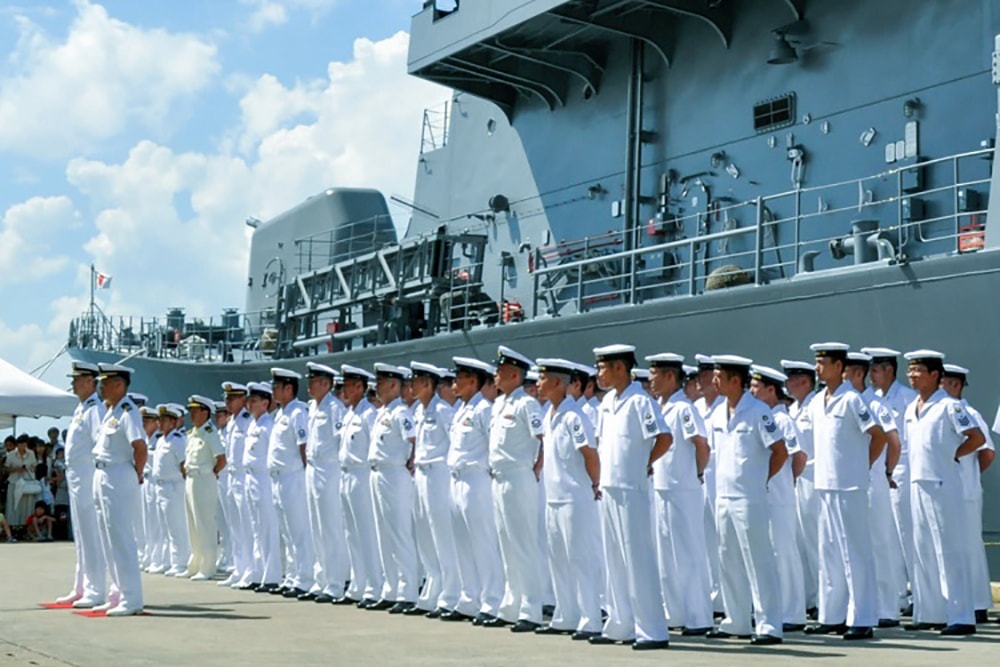 |
| Japan Maritime Self-Defense Force soldiers in front of the escort ship Makinami at Sasebo port, Japan. Photo: Kyodo |
Of course, realizing this goal is not easy. That is how to balance relations with the US ally without "angering" Iran, while still maintaining good relations with Iran's rival countries so as not to affect the neutral role in the region. Not to mention, Prime Minister Abe is also facing pressure from within the country, when the leaders of the four opposition parties including the Constitutional Democratic Party, the National Democratic Party, the Communist Party and the Social Democratic Party have just unanimously called on the government to withdraw the decision to send the Self-Defense Forces (SDF) to the Middle East in the context of current increasing tensions!

